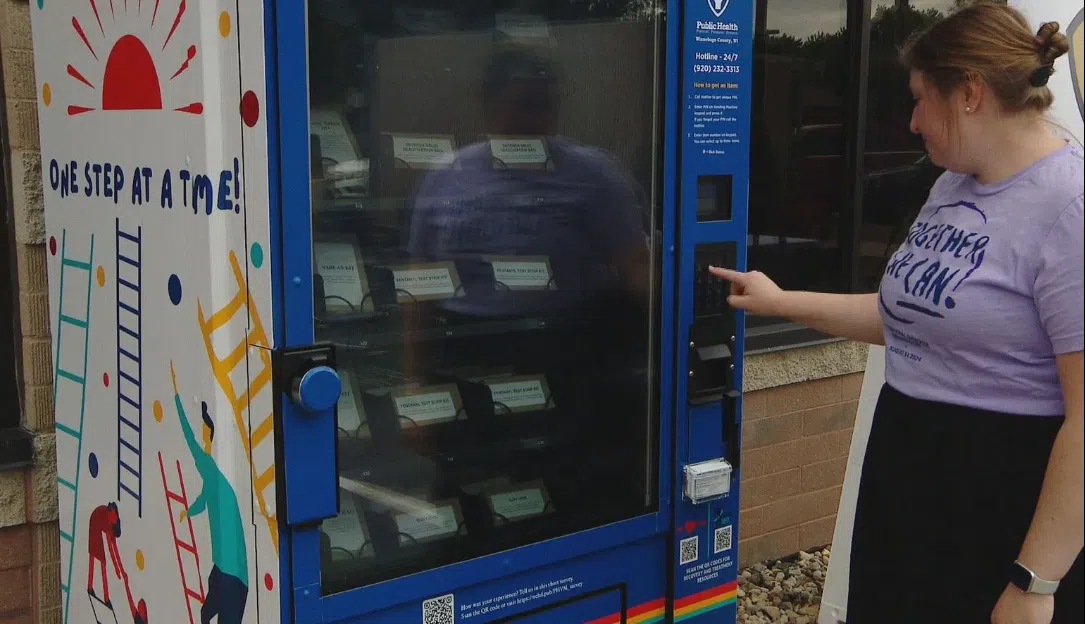OSHKOSH, WI (WTAQ-WLUK) — Drug overdose deaths across the United States have dropped significantly in the last year, and it’s especially true in parts of the Fox Valley.
As fentanyl grips the nation, communities both large and small are fighting back, and they know what works.
“Sometimes they say, ‘Oh, if you throw money at a problem, it’s not going to help,’” says Jennifer Skolaski, project manager for the Winnebago County Overdose Fatality Review team (OFR). “It does help. We have seen that in Winnebago County. When we put money towards peer services, recovery coaches, harm reduction, Narcan, programs in the jail — all these things working together — we see a decrease in our community regarding these overdose deaths.”
Skolaski says the 2024 annual report, released Friday, shows Winnebago County experienced 24 overdose deaths. In 2023, there were 47.
“The thing we’re obviously most excited by is that we saw this huge decrease in overdose deaths. We decreased 49%,” Skolaski says. “But with that being said, 24 people still lost their lives, which means there are 24 families and many, many friends who are grieving for the people who are lost.”
Winnebago County 2024 overdose deaths by the number:
- Fentanyl was the primary cause of death in 11 cases
- 22 had a known history of substance use
- 15 had a previous mental health diagnosis
- Seven were women, 17 were men
- Three were Black, 21 were white
- 14 overdoses were in Oshkosh, five overdoses were in Neenah, three overdoses were in other towns and villages and one overdose was in Menasha/Appleton
After reviewing these 24 cases, Skolaski’s team has identified three top priorities for the coming year, in hopes of further reducing the total number of overdose deaths.
The first is closing the communication gap between systems.
“We know that people may go to several health care systems or have contact with law enforcement agencies. How do we close those gaps so people who are on this continuum can have those different interventions for support?” Skolaski says.
The next priority is looking at childhood trauma, thinking about how to support children who have families that have been impacted and ensuring they have what they need to break the cycle.
The final priority is the continued emphasis on prevention.
While there is still plenty of work to be done, the largest-ever one-year decrease is worth celebrating.
“In the past year, we have put in overdose aid kits in the Oshkosh Area School District. We’ve worked closely with Winnebago County Jail to have recovery coaches coming in on a daily basis. Public health has debuted their public health vending machines,” Skolaski lists. “So I think our report speaks to showing our success.”
But the success comes as funding on the federal level is being slashed.
Skolaski warns if and when those cuts reach our communities, “We know that we can be innovative in a number of ways to address these problems, but there are certain programs where if they go away, we will see an increase in overdose deaths.”
One of the first programs in limbo when it comes to cutting federal funding is recovery coaches. Individuals who have experienced substance use and other struggles work directly with those who are currently being impacted.
“Seeing these peer services cut, it would be extremely detrimental to the work we’ve done,” Skolaski says.
Federal funding cuts would also have a major impact on treatment options.
The county gives out funds at times for people who qualify for treatment, and many people, to get better, they need treatment. If that goes away, that’s fewer people who may have access to treatment and getting better.
Finally, Narcan availability would be affected.
“A huge reason why we see this decrease is access to Narcan throughout our county,” Skolaski explains. “This is truly saving lives, and if that Narcan goes away and we see an increase in overdose deaths, there’s nothing we can do to help.”
While there is anxiety about the “what ifs” when it comes to federal funding, Winnebago County is focusing on what they can do now for the community.
Skolaski says another major hurdle is overcoming the stigma and talking about the problem, because anyone can fall victim to it. She even hosted a TED Talk on the issue.
“I think that sometimes we get this idea that people think that this is what someone who uses drugs looks like, and that narrative needs to be broken too, because if we want to get better, we can’t assume that it is one kind of person that is doing this. This truly is impacting all of us,” she says.
If we really wanna see this number go to zero, it’s not just the providers offering services. It’s family and friends supporting one another and saying, ‘Are you doing okay? Can I help you in some way?’
Skolaksi encourages community members to download the We Heart You app, which offers information on education and recovery services for those who may be struggling.


